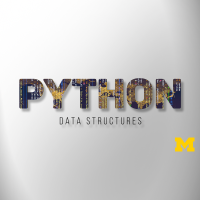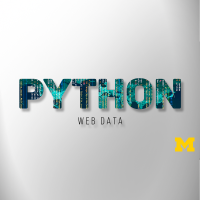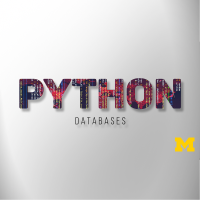Python for Everybody Specialization
Franklin University has partnered with Coursera Campus to provide cutting-edge certificates to learners seeking to advance. Courses are open to all learners. No application required.
Included in your subscription
Get unlimited access to over 10,000 offerings found on the Coursera website – including guided projects, specializations and professional certificates offered by hundreds of leading universities and companies. You also get access to all 46 professional certificates found in the Franklin Marketplace.
LEARN MORECourses required for program completion

BEGINNER | Computer Science | Self-paced | 19 hours
This course aims to teach everyone the basics of programming computers using Python. We cover the basics of how one constructs a program from a series of simple instructions in Python. The course has no pre-requisites and avoids all but the simplest mathematics. Anyone with moderate computer experience should be able to master the materials in this course. This course will cover Chapters 1-5 of the textbook “Python for Everybody”. Once a student completes this course, they will be ready to take more advanced programming courses. This course covers Python 3.
BEGINNER | Computer Science | Self-paced | 20 hours
This course will introduce the core data structures of the Python programming language. We will move past the basics of procedural programming and explore how we can use the Python built-in data structures such as lists, dictionaries, and tuples to perform increasingly complex data analysis. This course will cover Chapters 6-10 of the textbook “Python for Everybody”. This course covers Python 3.
BEGINNER | Computer Science | Self-paced | 19 hours
This course will show how one can treat the Internet as a source of data. We will scrape, parse, and read web data as well as access data using web APIs. We will work with HTML, XML, and JSON data formats in Python. This course will cover Chapters 11-13 of the textbook “Python for Everybody”. To succeed in this course, you should be familiar with the material covered in Chapters 1-10 of the textbook and the first two courses in this specialization. These topics include variables and expressions, conditional execution (loops, branching, and try/except), functions, Python data structures (strings, lists, dictionaries, and tuples), and manipulating files. This course covers Python 3.
BEGINNER | Computer Science | Self-paced | 14 hours
This course will introduce students to the basics of the Structured Query Language (SQL) as well as basic database design for storing data as part of a multi-step data gathering, analysis, and processing effort. The course will use SQLite3 as its database. We will also build web crawlers and multi-step data gathering and visualization processes. We will use the D3.js library to do basic data visualization. This course will cover Chapters 14-15 of the book “Python for Everybody”. To succeed in this course, you should be familiar with the material covered in Chapters 1-13 of the textbook and the first three courses in this specialization. This course covers Python 3.
BEGINNER | Data Science | Self-paced | 9 hours
In the capstone, students will build a series of applications to retrieve, process and visualize data using Python. The projects will involve all the elements of the specialization. In the first part of the capstone, students will do some visualizations to become familiar with the technologies in use and then will pursue their own project to visualize some other data that they have or can find. Chapters 15 and 16 from the book “Python for Everybody” will serve as the backbone for the capstone. This course covers Python 3.Complete This Certificate. Get College Credit.
You know that skill-specific courses will open the door to specialized jobs, but did you know that they will also move you closer to a degree at Franklin University?
The University has evaluated hundreds of certifications for industry-recognized proficiencies and awards credit that equates to specific Franklin courses, as well as technical- or elective-credit requirements. See how much time and money you'll save toward your degree by building on prior learning credit.
Browse & Filter
Frequently Asked Questions
Please submit your certificate to plc@franklin.edu for review and processing. After your official evaluation has been completed, please review it to ensure that all eligible credits have been applied.
You can submit documentation before or after you apply to Franklin.